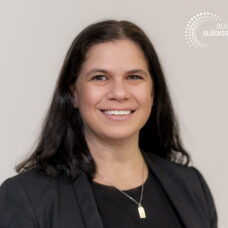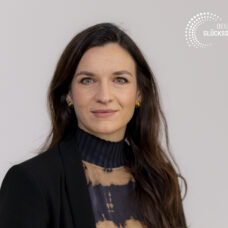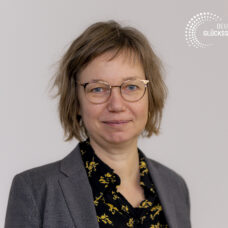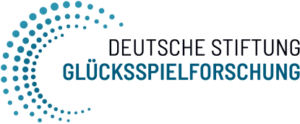Research Awards
The awards
Information on suitability, eligible research and nomination proceduresThe purpose of the foundation according to § 2 para. 2 of the foundation’s statutes is the regular awarding of a research prize for research projects already published or submitted for publication, in particular with regard to the causes of gambling addiction and its fight against it as well as with regard to consumer protection to achieve the objectives under gambling law in § 1 of the State Treaty on the New Regulation of Gambling in Germany of 1. July 2021 in its current version, whereby the research project includes and takes into account the experience and acceptance of gambling customers.
Nomination Process
A. Eligibility for Nomination
The call for nominations for the Award is open to scientists at accredited academic institutions or universities in a German-speaking country (Germany, Switzerland, Austria). Eligible candidates should have a proven track record of expertise in the specific field relevant to the research prize. This expertise may be demonstrated through published research, significant contributions to the field, or other relevant indicators of their knowledge and experience.
Criteria
The research must make a novel contribution to the study of gambling and/or gambling addiction. It should also have an outstanding contribution to the public interest in gambling in the sense of § 1 GlüStV 2021.
Author Eligibility
To be eligible for the German Innovation Award on Gambling Research, the nominee(s) must be affiliated with an academic research institution based in a German-speaking country (Eligible Authors). This includes Germany, Austria, and Switzerland. This ensures that the award is recognizing scholarship and promoting innovation within this specific region.
In the case of research conducted by a team, only Eligible Authors may receive prize money pro rata to 30%, but all contributing authors to the study are considered part of the nomination of the award (Contributing Authors[1]). The contribution of each author to the research should be clearly indicated. Eligible Authors are expected to have made a substantive contribution to the conceptualization, methodology, investigation, and/or supervision of the research.[2] 70% of the prize money goes to the submitting scientific research institution from Germany, Austria or Switzerland.
The nominating institution is responsible for identifying all Eligible and Contributing Authors and coordinating the division of the prize money among Eligible Authors as well as the institution itself. This includes obtaining explicit agreement from all contributing authors on the nomination prior to submitting the nomination. The institution’s role in this regard ensures a fair and transparent process, recognizing all contributors to the innovative research appropriately.
Authors at any stage of their career may be nominated for the main award. A Young Researcher Award is available for researchers within 10 years of receiving their terminal degree (e.g., PhD, Master). The Young Researcher Award and related prize are allocated only to lead authors.
Institutional Nomination
The research must be conducted in affiliation with, and nominated by, an academic institution from Germany, Switzerland, or Austria with which the nominee(s) is/are associated. This criterion serves to reinforce the Award’s dedication to maintaining the highest standards of academic integrity and quality.
The nominating institutions is responsible for the ethical conduct of the nominated research. This includes:
- Ethical Oversight: Academic institutions are responsible for providing ethical oversight of the research conducted under their purview. This often involves an Institutional Review Board (IRB) or Ethics Committee that reviews and approves research protocols to ensure they are designed and carried out in a manner that respects the rights and welfare of the research subjects.
- Education and Training: Institutions play a crucial role in educating researchers about ethical standards and practices. This typically includes training on responsible conduct of research, protection of human subjects, and other relevant ethical issues.
- Research Integrity: Institutions are responsible for fostering an environment that promotes research integrity. This includes policies and practices that discourage misconduct and encourage honesty, accuracy, efficiency, and objectivity in research.
- Conflict of Interest and Author Credit Assignment: Academic institutions have a dual role of managing conflicts of interest and ensuring proper credit assignment among authors. Conflict of interest can potentially compromise the integrity of the research, leading to undue influence by external interests. Institutional policies must require researchers to disclose financial or other relationships that could influence their research, as well as processes to manage any identified conflicts.
In the context of the German Innovation Award on Gambling Research, the nominating institution is required to confirm the authorship of the nominated research and how credit is apportioned among authors. This confirmation is an important part of the nomination process, ensuring that the award recognizes the correct individuals for their contributions. It underscores the Award’s commitment to promoting research integrity, transparency, and fairness in the recognition of scholarly work.
By requiring the nominated research to be conducted in affiliation with and nominated by an academic institution, the German Innovation Award on Gambling Research is ensuring that the recognized research has undergone the ethical oversight and scrutiny that these institutions provide. This requirement underscores the Award’s commitment to promoting research that not only advances our understanding of gambling and/or gambling addiction but does so in a manner that upholds the highest ethical standards.
Eligible Research
The nominated research must be the Contributing Authors’ own original work. The nominated research must be theoretical, empirical, or methodological scientific work written in English. It should be a single study or a closely related group of studies that have been accepted for publication in one or more peer-reviewed academic outlet(s) in the last five (5) years prior to the application period.
B. Nomination Submission
The nomination submission process is designed to ensure a comprehensive and rigorous review of the nominee’s research contribution. It involves the following components:
- Research Summary: The nominator should submit a summary of the research work that is being nominated. This summary should succinctly describe the objectives, methodology, results, and implications of the research. It should highlight why the research is innovative and how it advances our understanding of gambling and/or gambling addiction.
- Research Impact Statement: The nominator should provide a statement explaining how the research contributes to the field of gambling studies. This can include implications for regulatory requirements for consumer protection, addiction prevention, public policy, management science, or other relevant areas that benefit consumers and/or the public.
- Relevance to Award Mission: The nominator should describe how the research aligns with and contributes to the mission of the German Innovation Award on Gambling Research and the German Foundation on Gambling Research.
- Evidence of Publication: As proof of the research’s acceptance in a peer-reviewed academic outlet, the nominator should include a copy of the acceptance letter from the relevant academic journal or conference, or a verifiable citation to the published work.
- Author Details: The nominator should provide details about the nominee, including their affiliation, academic background, and role in the research. If the research was conducted by a team, details about all nominated authors should be included.
Significant emphasis is placed on acknowledging ‘the integrity and moral standards demonstrated by the authors. This focus extends beyond their scholarly contributions to include the ethical qualities that underscore their work. Attributes such as adherence to research ethics, commitment to truth and accuracy, integrity, respect for diversity and inclusivity, and dedication to the responsible use and dissemination of knowledge are all vital considerations in our evaluation. These qualities not only enhance the credibility of their research but also serve as a model for other scholars and practitioners in the field.
- Institutional Endorsement: The nominator should include a letter of endorsement from a senior representative (e.g., Dean/Vice Dean, Institute Director, President/Vice President’s Office) of the nominating institution, confirming the institution’s support for the nomination and attesting to the integrity and quality of the research.
All nomination materials should be submitted in both English. Nominators are encouraged to ensure their submission is thorough and well-prepared to facilitate a comprehensive review. The German Foundation on Gambling Research shall provide a submission template.
[1] Contribution Authors are not eligible to receive part of the prize money but would get credit of the award.
[2] See CRediT author statement: https://www.elsevier.com/authors/policies-and-guidelines/credit-author-statement
Download
GIAGR Nomination and Evaluation Procedure 2025
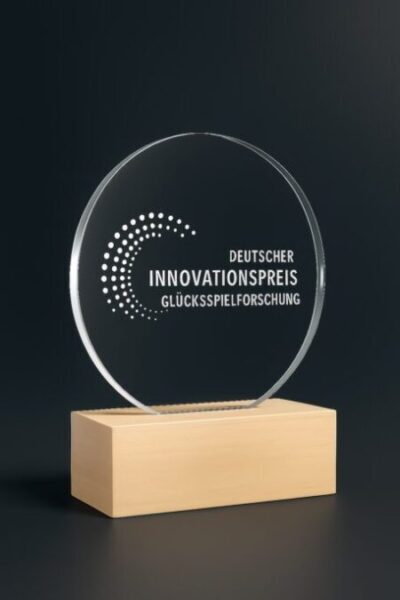
The German Young Researcher Award on Gambling Research
AboutOnly authors who are no more than 10 years after obtaining their degree (e.g. B. PhD, Master) are scientifically active. The Young Researcher Award and the associated prize money will only be awarded to first-time authors.
Once a year, up to three “German Young Researcher Awards on Gambling Research” are awarded, each with
EUR 30,000,-
are doted.
The Young Researcher Awards are awarded to a single person.
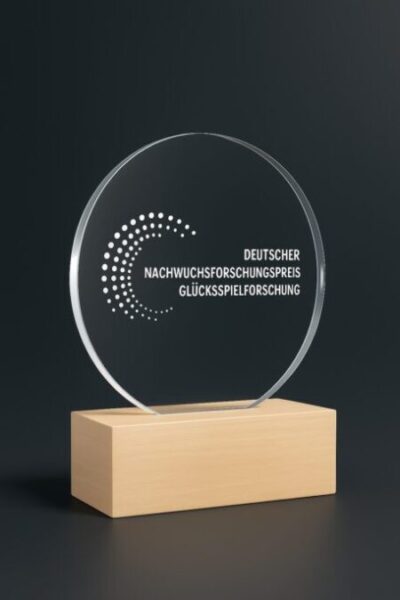
Please note the following legally binding regulations before submitting documents:
1. The award of the research prize may be withdrawn in whole or in part with effect for the past or for the future, if it was based on false facts or was obtained through inaccurate information.
2. If the prize winner has received benefits without legal basis, there is a claim for reimbursement on the part of the Deutsche Stiftung Glückspielforschung gGmbH. Benefits received must be refunded immediately. The right to reimbursement exists regardless of whether the services granted by the research prize have already been used in whole or in part or consumed.
Submit project
The jury of the Research Awards
